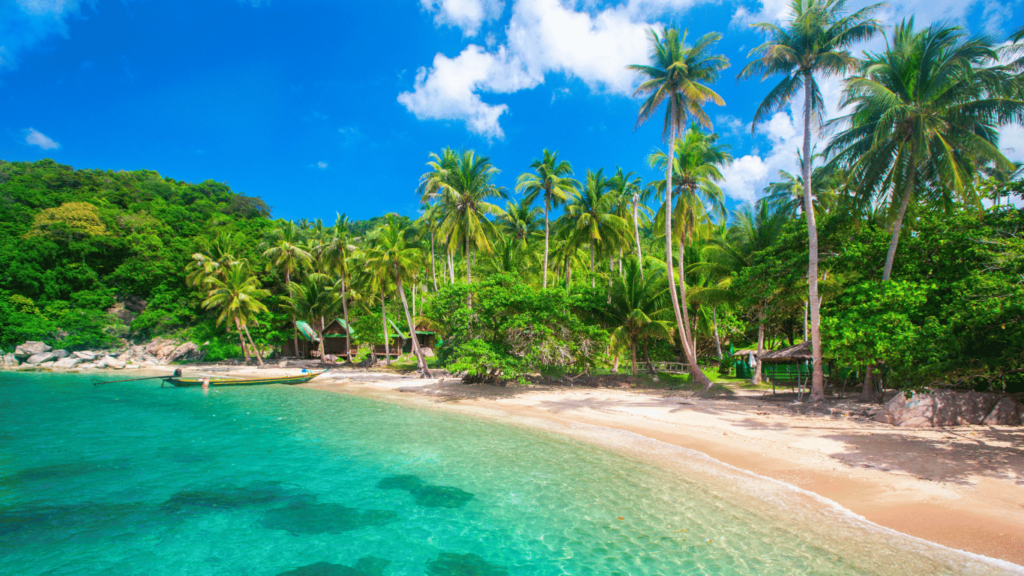Snorkelling with the world’s largest fish is on the bucket list for almost every ocean enthusiast, but the methods of many tour guides have sparked a controversial debate into whether swimming with these endangered animals protects their future or directly threatens it.
There are two sides of the argument :
- Whale Shark Tourism prevents illegal whaling and finning in Indonesia. A number of local fishing villages in Sulawesi, Sumbawa and the Philippines have swapped their illegal harpoons for snorkelling masks after realising it is more profitable to bring tourists to see the Whale Sharks than defying the law by hunting them for their meat and prized Fins.
- Whale Shark Tourism creates an unnatural and dangerous dependency on humans for food. Many boats pump krill into the water to lure whale sharks in close to their tourist boats a method that is causing recorded boat collisions to skyrocket.
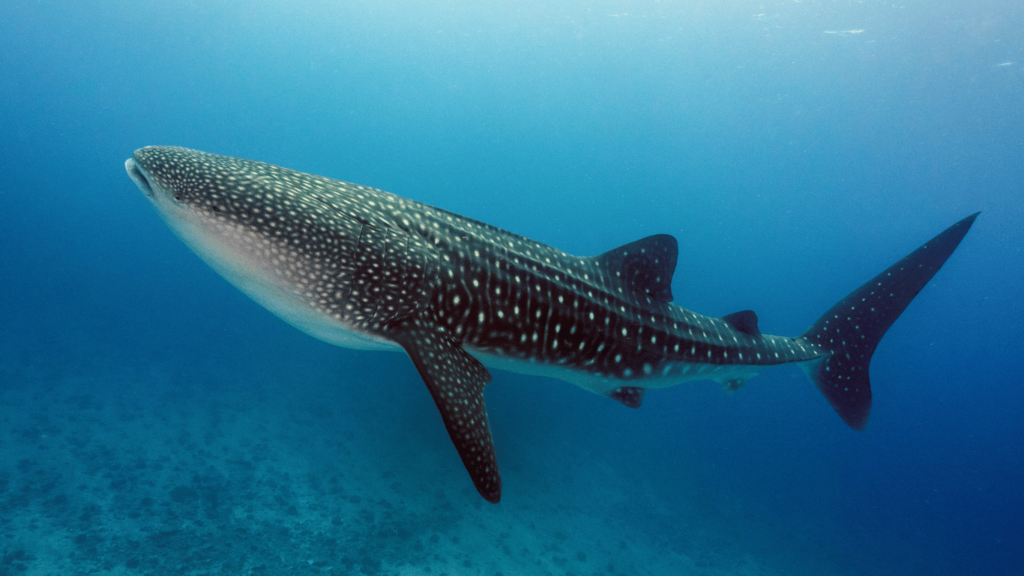
Clearly, Whale Shark Tours are the lesser of two evils here but ultimately still pose a very real risk to these gentle giants future.
However, there is hope. If we as tourists band together to boycott unethical tour companies and demand, considered, eco-friendly practices then we might just find a balance to achieving profitability for the locals and protection for the Whale Sharks.
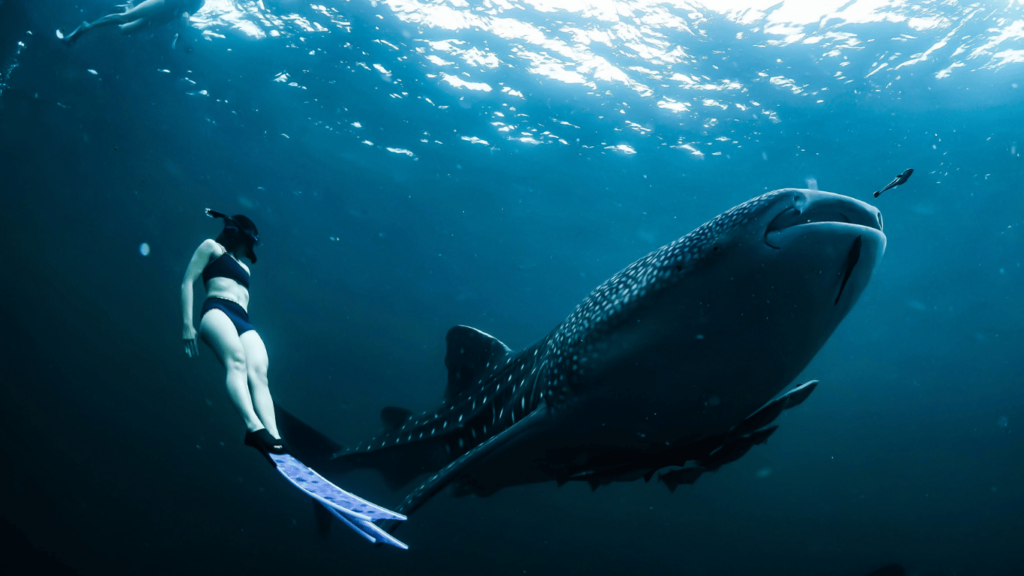
So how do I know if a whale shark tour is ethical?
After documenting the practices of many tourist boats across Indonesia, I’ve learned both some sad truths about the industry and seen some positive steps forward. So to help you choose an ethical whale shark swimming tour in Indonesia here are some key warning signs to look out for that indicate your whale shark experience is unethical and should be avoided.
Unethical Whale Shark Tour Red Flags:
- 5+ Tourists allowed to swim at any one time
- No briefing before entering the water
- Luring whale sharks in with food
- Manmade feeding sites rather than natural feeding and breeding grounds
- Boats Drive in close proximity with the Whale Sharks
- Boat engines are left running
- No briefing on swimming guidelines before entering the water
Ethical Whale Shark Swimming Checklist:
- No feeding the whale sharks
- Less than 5 people in the water at any one time
- No sunscreen
- Maintain a 4-metre distance
- No touching
- No flash photography
- Stay clear of their path
- Swim slowly through the water and don’t splash
- Boats must all be anchored
- Boats must be anchored at least 20m from the closest sighted whale shark
- Enforced Fines/ losing your deposit for touching the Whale Sharks
- Reviews commending the ethics of the tour
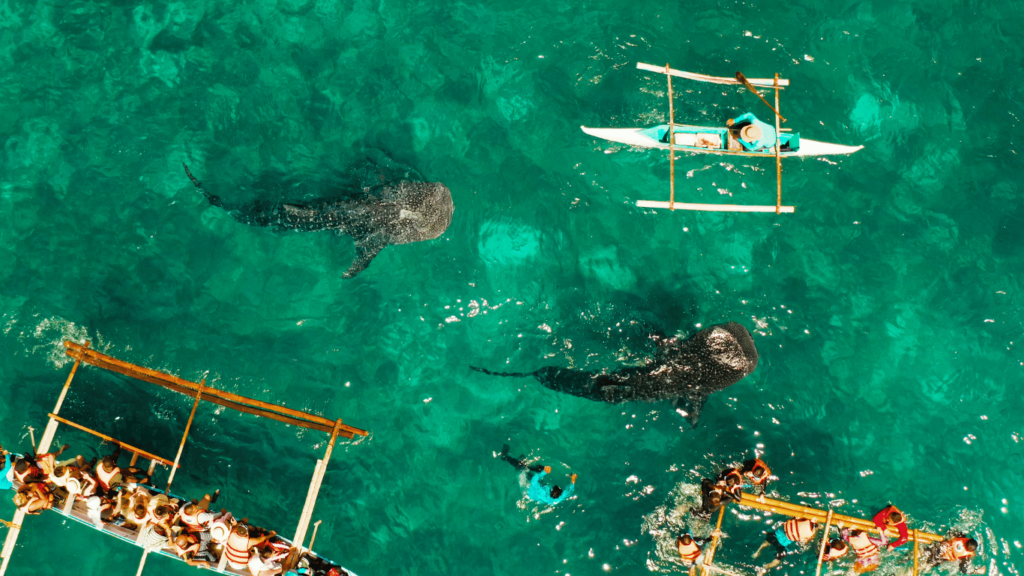
What is wrong with fishermen feeding the Whale Sharks?
There are two main reasons. First up it makes Whale Sharks learn to associate boats with food, so something to approach rather than avoid. This constantly causes collisions and propeller strikes that injure or even kill whale sharks. Secondly, they become overly reliant on their free fisherman’s buffet breakfast and lose the natural ability to locate and feed on plankton shoals.
Why unethical whale shark tours need to be banned
Our apologies but we are about to hit you with some sad truths about the darker side of Whale Shark tourism. We have witnessed blood-red waters after propeller collisions, heard about tourists trying to sit on the back of whale sharks, and tracked whale maps which highlight how this newfound reliance on human feeding has completely changed their natural migratory routes and feeding patterns.
The whale shark species are on the IUCN red list meaning they are globally classed as endangered. It is estimated that just 200,000 wild whale sharks are left in the world’s open oceans and less than 10% of Whale Sharks reach adulthood and consequently reproduce. Indonesia is the largest remaining natural habitat for the species and must be protected at all costs. But what is the Indonesian government actually doing to protect the last of this species?
Where are the best ethical whale shark tours in Indonesia?
- Teluk Cenderawasih National Park, Duairi, (West Papua)
- Weh Island (Aceh)
- Probolinggo (East Java)
- Talisayan (East Kalimantan)
- Parigi (Central Sulawesi)
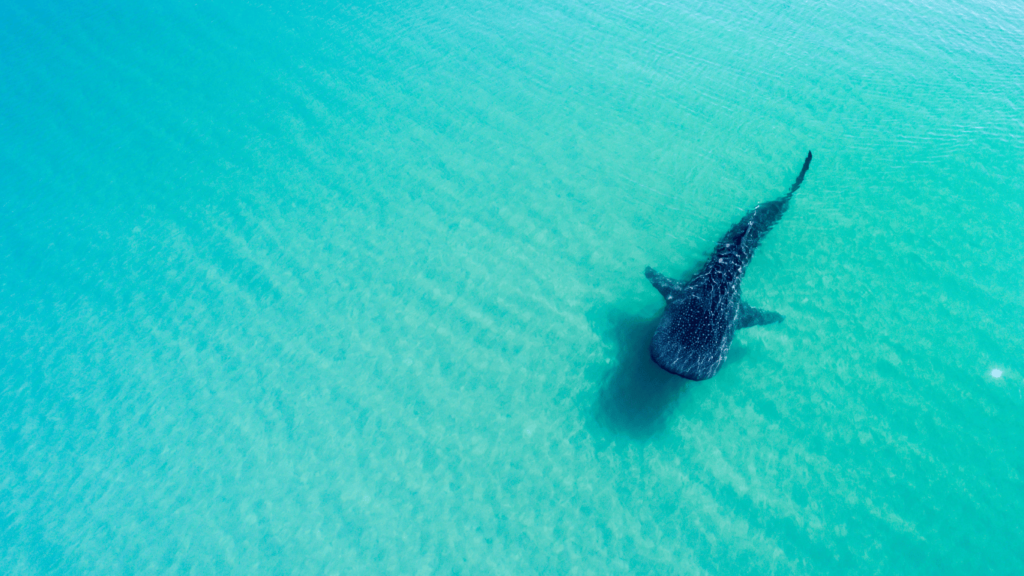
How does Indonesian Government protect the Whale Shark?
The Indo-Pacific Ocean has a greater number of recorded Whale Shark sightings than any other ocean in the world, and yet the Indonesian government is still not doing enough to protect this final stronghold for the species.
Since 2013 the Whale Shark has been declared a protected species in Indonesia. However, this protected classification has not done enough to discourage whalers and left little mark on the Whale Sharks’ rate of population decline. So we must ask the question, is the Indonesian Government doing enough to protect the Whale Shark species?
For the first time in its history, the Whale Shark has been listed as an endangered species. A clear sign that the Indonesian government is failing to deter whaling operations, prevent illegal fishing methods and regulate ethical Whale Shark tourism.
The Indonesian government needs to prioritise Whale Shark conservation by:
- Promoting the incentives of ethical tour companies
- Investigation of tour guide companies flagged for unethical Whale Shark Tourism
- Enforce ethical fishing practices to minimise bycatch of larger marine mammals
- Enforcing legal action on unethical tour guide practices
- Law Enforcement against illegal finning and whaling operations
- Improved eco-tourism management and investment
- Reducing marine debris, ghost netting and plastic pollution
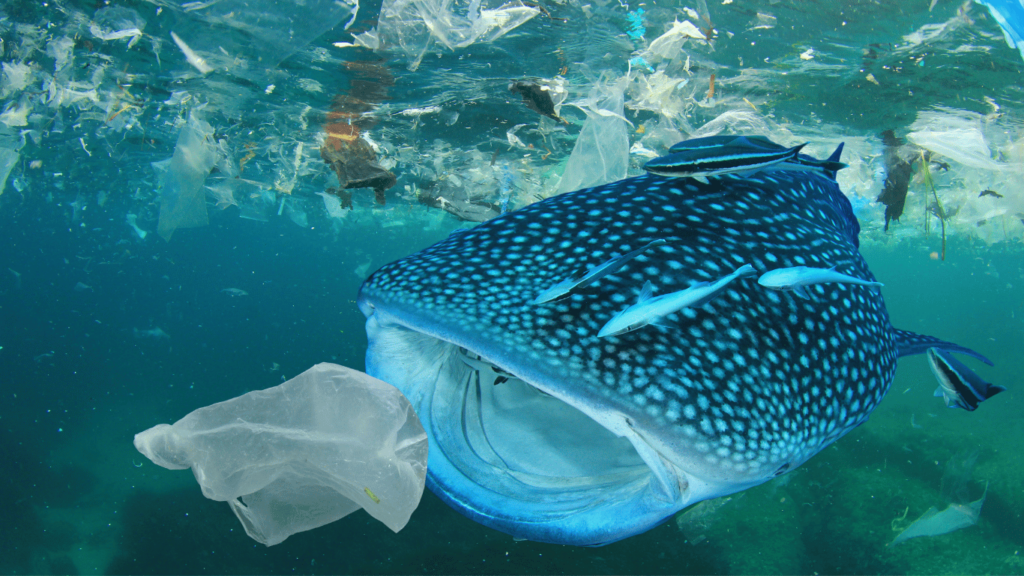
So is swimming with Whale Sharks cruel in Indonesia?
The act of cautiously swimming with the whale sharks is not cruel itself but does increase the likelihood of the sharks colliding with boats.
As tourists who finance the industry, it is up to us to voice our concerns and exclusively choose the most ethical tours available. In time this could enforce an increasingly ethical approach to Whale Shark Tourism that could easily be the key to guaranteeing the species’ existence for generations to come.




